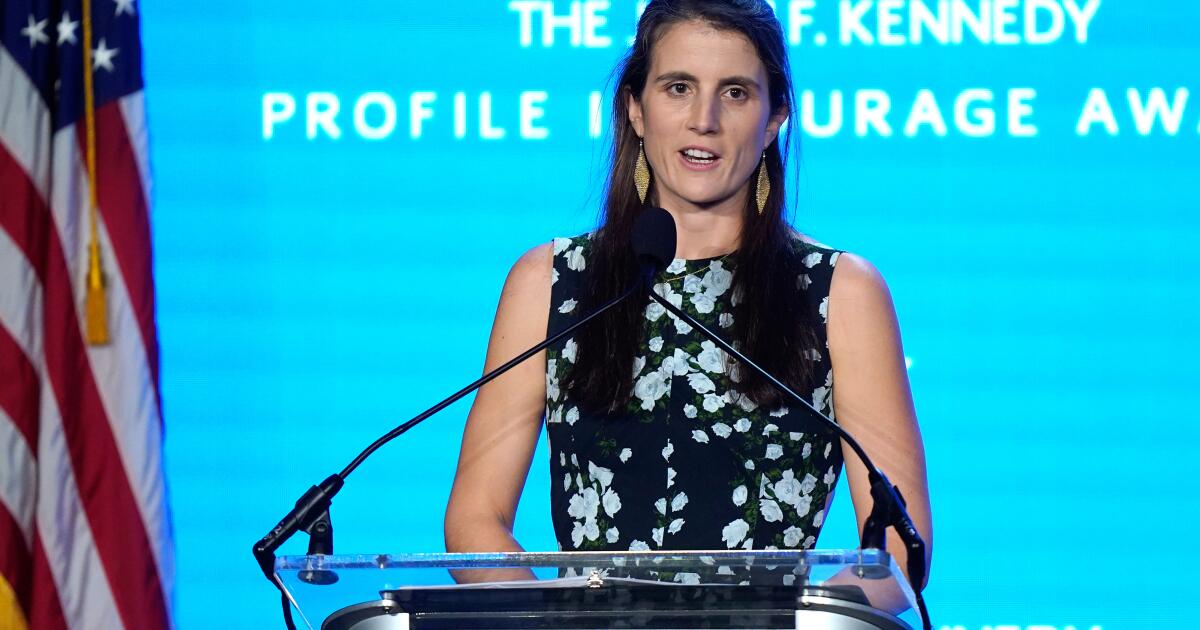ISABELLE DEBRE
SANTIAGO (AP) — Franco Parisi says he became Chile's most wanted man overnight.
A populist economist who finished third in Chile's presidential election over the weekend, Parisi told The Associated Press on Saturday that he had been fielding calls all week from left-wing government officials and right-wing opposition leaders. According to him, a former cabinet minister even approached him in a restaurant.
They are all seeking the same thing: to help influence the crucial 20% of voters who supported him last Sunday to cast their votes for one of two candidates in the December 14 runoff: communist Jeannette Jara or right-wing José Antonio Castu.
His answer is clear: no.
“I don't talk to any of them because I don't trust them,” Parisi said of Caste and Hara. “They don't believe in common sense. They believe in ideology.”
In the Nov. 16 election, Jara—a former labor minister under center-left President Gabriel Boric who championed expanding Chile's social safety net—received 26.9% of preferences.
His main challenger, Kast, a former ultra-conservative lawmaker whose campaign revolved around concerns about rising crime and illegal immigration in the country, won 23.9% of the vote, leading to the country's most polarized runoff election since the return of democracy in 1990.
Parisi won an astonishing 19.7% of the vote, attracting voters angry about the lack of economic opportunity in one of Latin America's most prosperous but most unequal countries and who are eager to punish elites on both the left and the right. His People's Party, a diverse group drawn from across the political spectrum, won 14 of the 155 seats in the divided lower house of Congress.
Caste appears to be in a good position to win the runoff, especially if a significant portion of Parisi's 2.5 million votes swings in his favor.
With his followers playing a major role in choosing the country's next president, and facing the influence of his party once the new government takes power, Parisi – a famous YouTuber (host of a show called “Bad Boys Who Make the Elite Uncomfortable”) – is suddenly gaining weight. But he says he won't do anything about it, even in exchange for control of key ministries.
“Right now I’m confined to my house and not answering calls,” he said in a Zoom interview from the capital Santiago.
“No communist, no fascist”
Within minutes of the election results being announced, the fourth and fifth place candidates, radical libertarian Johannes Kaiser and center-right Evelyn Mattei, spoke out in favor of Kast.
But Parisi refused when asked on Saturday whether Cast would collect his votes, saying: “Absolutely not.”
In a country that has encouraged all its citizens to vote, Parisi predicted that the majority of his followers would cancel their votes on December 14 in protest at their poor choice.
“Zero votes, empty ballots—that will be the great shadow of this election,” he said.
Reiterating his campaign slogan of “neither communist nor fascist,” Parisi said his surprising electoral success underscored that “the people of Chile feel that they are being taken advantage of by politicians of the left and the right, both communists and fascists.”
His reference to fascism refers to the controversial family background of Kast, whose German-born father belonged to Adolf Hitler's Nazi party and whose brother served under the dictatorship of General Augusto Pinochet.
Although he shares Caste's capitalist principles, Parisi said he doubts the veteran politician – from Chile's privileged elite – will change the concentration of market power that lies in the hands of a few. In recent days, Caste's campaign has included important financial officials from Chile's conservative establishment, who backed Mattei in the first round.
Parisi expressed concern that Caste's government would “restrict some individual freedoms,” citing as examples devout Catholics' staunch opposition to same-sex marriage and abortion, even in cases of rape.
Jara, born and raised in Conchali, a working-class neighborhood in Santiago, is no better off because of her humble origins, Parisi argues, citing her rise through the ranks of the Communist Party.
“This is the traditional party structure in Chile,” he said. “You have to be a soldier to become a lieutenant, then a general to get more power, more privileges.”
He called Haru “a really good person” but said he feared his economic vision would hinder the venture.
Representatives for Hara and Cast did not immediately respond to requests for comment.
Voters caught between left and right
A famous campaign video from Parisi's first presidential campaign in 2013 shows him arriving in a seedy Santiago neighborhood in a Porsche, dressed in a smart suit and shiny shoes. He knocks on an elderly woman's door and, to his surprise, asks her for a job – to hire him as her president.
The video says it all about Parisi's essence as a city dweller and his appeal to Chileans who feel forgotten by the political and economic system, experts say, a frustration that has become evident in elections across the region.
In this sense, says Patricio Navia, a Chilean political scientist at New York University, Parisi's supporters are—perhaps ironically—reminiscent of the voters of New York mayor-elect Zohran Mamdani, who has vowed to transform government to return power to the working class.
“Parisi's followers love going to the mall, they want to own a home, they love capitalism,” Navia said. “But they feel that there is no level playing field, that they are being excluded, that the model is against them.”
___
This story was translated from English by an AP editor using a generative artificial intelligence tool.








